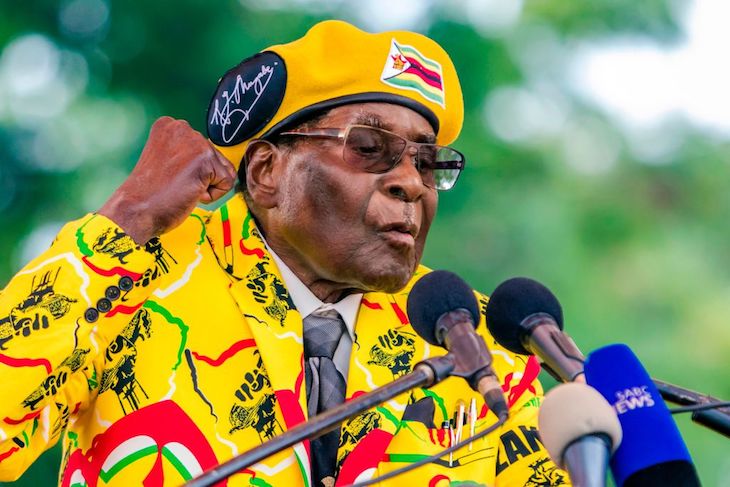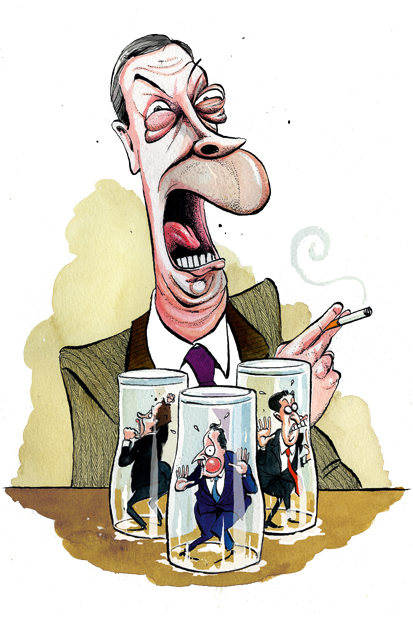History will curse Robert Mugabe. When he took over as prime minister in the wake of the Lancaster House agreement in early 1980, Zimbabwe was one of the most prosperous countries in Africa. Mugabe inherited excellent infrastructure, a strong economy, stable institutions, an independent judiciary, an excellent school system and the goodwill of the world.
In the course of nearly 38 years, he wrecked all of this. He corrupted his country’s democratic institutions, destroyed the economy and debauched the currency while making himself and a tiny circle of cronies and relatives spectacularly rich.
The complacent British view is that Mugabe started out well but went wrong. Sir Nicholas Soames, son of the last governor, Lord (Christopher) Soames, spelt this out on the Today programme on Wednesday morning. According to this widely held Anglocentric thesis, everything went reasonably well until Mugabe set his thugs on the white farmers in the late 1990s. It’s true this was an economic calamity for Zimbabwe, but the ugly truth is that the Mugabe regime was involved in corruption and violence right from the very beginning.
Mugabe was determined to consolidate power and eradicate all opposition to his political party, Zanu-PF. This meant taking out his rival Joshua Nkomo, whose Zapu (Zimbabwe African People’s Union) power- base lay among the Ndebele people in Matabeleland in the west of Zimbabwe.
First of all Mugabe sacked Nkomo from his cabinet, likening him to a ‘cobra in the house’. Then he turned on his supporters. Mugabe’s Fifth Brigade, an elite force trained by North Korea, was deployed in Matabeleland in a campaign of arson, torture, intimidation and mass murder.
It is estimated that approximately 20,000 people were killed over five years in the Matabeleland genocide, known as the Gukurahundi (a Shona word meaning ‘wind which blows away the chaff before the rain comes’.) The Thatcher government averted its gaze while this horror was taking place. It had invested too much in Mugabe. (There is a sickening and very exact parallel here with Britain’s inertia as the Rohingya Muslims of Burma are ethnically cleansed by another British favourite, Aung San Suu Kyi, who was installed with our backing after a long period of dictatorship.) Nobody has ever been brought to justice for the Gukurahundi. However, there is no doubt about the identity of the chief strategist. He was Emmerson Mnangagwa, then minister of state security. It was Mnangagwa’s removal from his post as vice-president on 6 November for allegedly displaying ‘traits of disloyalty, disrespect, deceitfulness and unreliability’ that sparked this week’s coup d’état. He is likely to take control of Zimbabwe, at any rate for the immediate future and very likely for much longer.
This poses a hideous moral dilemma for Western governments. On the face of things they should shun Mnangagwa, a man who has even more blood on his hands than Mugabe himself. The architect of a genocide, he is at the dark heart of the culture of violence which has poisoned Zanu-PF. But dare they do without him? He is charming, highly intelligent and pragmatic. A friend of mine recently spoke to both Mnangagwa and his political rival Grace Mugabe in the same week on a business matter. Mrs Mugabe rebuked my friend for not having congratulated her earlier on the honorary degree she had been given by a tame university. Mnangagwa was businesslike and efficient: ‘What do you need and how can I help?’ He has the support of the army and the security establishment. That means he can order the military back to its barracks.
Though life was dire in the final decade of Mugabe’s Zimbabwe, it could get far worse. It could descend to tribal warfare and civil breakdown. Zimbabwe could turn into the unspeakable horror of South Sudan or the Congo. Emmerson Mnangagwa can stop this happening. That is the calculation of Western diplomats. That is why Britain (though diplomats deny this, both publicly and privately) is behind him.
The hope is that he will do a Pinochet or a Franco. In other words he will restore order and guide his country back to democracy. Those who know him well believe that Mnangagwa is eager to redeem his bloodstained reputation and rebuild his country.
But it is a gamble. There are elections next year. Will Mnangagwa allow them? And even if he does, will he let the opposition parties have a decent run. Morgan Tsvangirai, leader of the Movement for Democratic Change, would almost certainly win free elections. Would Mnangagwa permit that? Or would he unleash the killing and intimidations that were a feature of elections during the Mugabe era.
Nobody knows. But we should cautiously welcome the army takeover. Mugabe, through his wife Grace, was attempting to establish a system of hereditary rule. Having ruined his wonderful country, he wanted to ruin it for future generations. So it was right that the military stepped in and a pity it did not do so sooner.
This could be the moment that sets Zimbabwe back on a course towards freedom and prosperity. If it goes wrong it will open the doors towards fresh horror. But the streets were quiet in Harare on Wednesday morning, and the army seems united. The early signs are hopeful. A monster has left the stage.
Got something to add? Join the discussion and comment below.
Get 10 issues for just $10
Subscribe to The Spectator Australia today for the next 10 magazine issues, plus full online access, for just $10.
You might disagree with half of it, but you’ll enjoy reading all of it. Try your first month for free, then just $2 a week for the remainder of your first year.














Comments
Don't miss out
Join the conversation with other Spectator Australia readers. Subscribe to leave a comment.
SUBSCRIBEAlready a subscriber? Log in